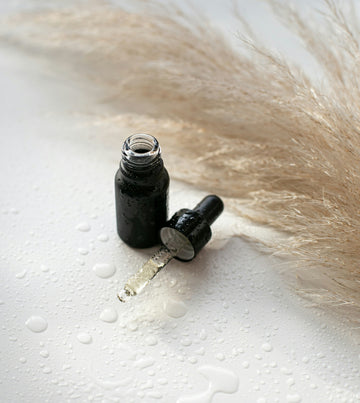From treating acne scars to fighting fine lines and wrinkles, retinol, a synthetic form of Vitamin A, has been a buzzword in the skincare world for decades. More recently, it’s been making headlines for another reason.
Due to growing concerns about the side effects of overexposure, the European Union is taking steps to limit retinol quantities in over-the-counter skincare products.
We’re going to break down the retinol controversy once and for all, and explain why you won’t find it in Lake+Main products.
Understanding EU Retinol Restrictions
While the safe use of retinol skincare has been up for debate in the news, it’s important to note that the ingredient isn’t being banned outright. Here’s what we think you need to know about the recent restrictions:
- Starting November 2025, the EU will regulate the amount of retinol in new face and body products.
- Face products can have a maximum of 0.3% retinol equivalent, while body products can have just 0.05%.
- All existing products sold within the EU will have until May 2027 to comply with these restrictions, or they will be removed from the market.
The “why” and “why now”:
These regulations are based on a scientific review of Vitamin A conducted in the EU. It found that while retinol is a perfectly safe form of Vitamin A, it’s possible that some consumers are getting too much of a good thing.
As we already access this vitamin in our food, consumers who also use high-dose retinol skincare may become overexposed to Vitamin A without realizing it.
Investigations found that long-term overexposure to retinol can cause potential health risks, skin irritation, and, in extreme cases, Vitamin A toxicity.
Pros and Cons of Retinol in Skincare
While we choose not to use the ingredient at Lake+Main, it’s important to know that retinol is not inherently “bad” - it simply has its pros and cons.
Here are the facts:
👍 Retinol has been proven to accelerate cell turnover, even out skin tone, and mitigate acne breakouts.
👎 Some users find that it causes skin irritation (or retinol burn) and sensitivity to sunlight.
👎 The overuse of retinol can be harmful, especially those who are pregnant or suffer from certain liver conditions.
Exploring Natural Alternatives to Retinol
At Lake+Main, you won’t find retinol in our products. Not because we think it’s harmful, but because we’re big believers in doing your own research. That’s why we sought out experts in the clean skincare field who have introduced us to some amazing natural retinol alternatives.
Our products don’t use these ingredients (yet), but at Lake+Main, we’re passionate about staying current on all things clean beauty.
Here’s our list of the most promising natural alternatives to retinol:
- Hypskin - Causes similar cell renewal activity to retinol with no known side effects.
- Rosehip Oil - Naturally contains small amounts of retinoic acid, essential fatty acids and antioxidants.
- Bakuchiol - The most popular retinol alternative with very similar results.
- Novoretin - Works with your skin to maintain its natural retinoic acid levels.
- Retinart - Activates retinoic acid receptors without triggering skin irritation.
- Retinaturel - Naturally controls the delivery of retinoic acid leading to fewer side effects.
Navigating the world of skincare can be tricky, especially with ongoing debates about ingredients like retinol. At Lake+Main, we believe in simplifying skincare by focusing on clean beauty and natural ingredients. If you want to take your self-care routine back to its roots, The Six Collection is a great place to start (and not just because it’s on sale).
Follow along to discover how clean, effective skincare can fit seamlessly into your lifestyle.





